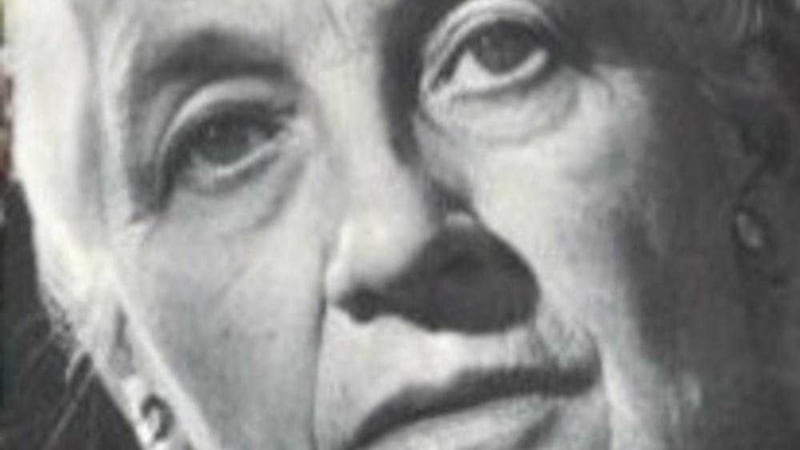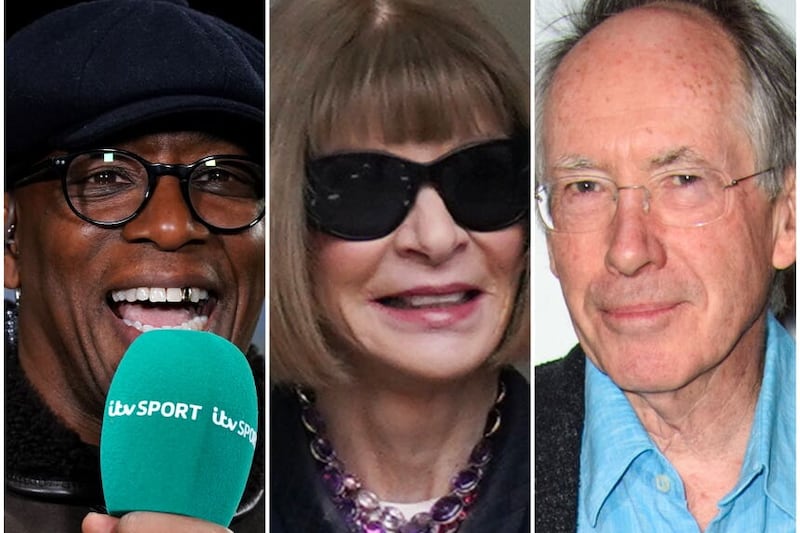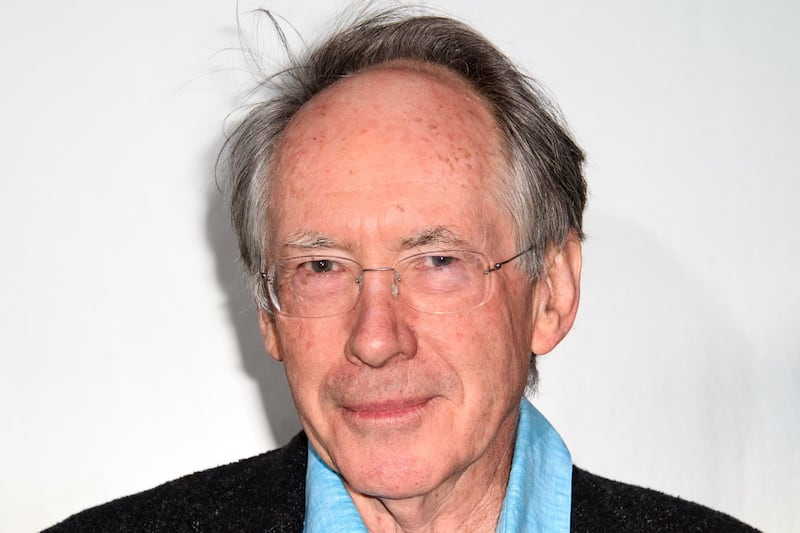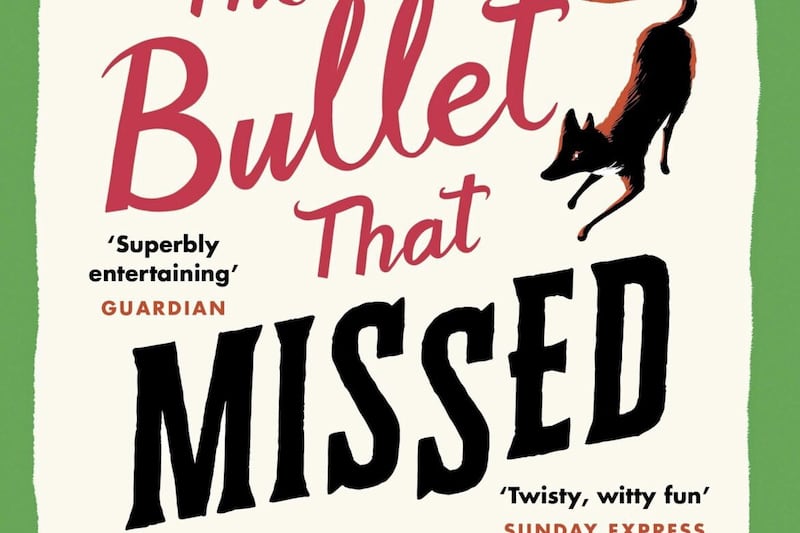BOOK OF THE WEEK
Belfast On A Plate, words Joanna Braniff, photography by David Pauley, available on Amazon and in book shops and tourist outlets from next week
“DO YOU know anything about...?” “Have you tried... yet?” “Were will we go for dinner?”
Wonder no more. If you’re looking for a place to eat in Belfast have a browse through Belfast On A Plate, a new book written by Joanna Braniff with sensational photographs by David Pauley of The Studio.
It’s said that food is the hardest of all subjects to photograph; well, David has it down to a T. Not only have this duo visited 20 of our outstanding restaurants, former Irish News journalist Joanna has interviewed the chefs and come away with 60 of their favourite recipes.
It’s a proud boast to say that Belfast is now recognised as one of the great European food destinations but this book proves it is so; indeed one area in the east of the city, Ballyhackamore is so well served that it’s now known as Ballysnackamore.
From Michelin-starred restaurants to bistros and gastro pubs, the writer has delved deep giving the history of the chefs and of the venues from new-builds to a converted church. Howard Street, we discover, has doors salvaged from a Christian Brothers' school and a terrazzo floor unearthed during renovation of the interior.
James Street South – an old linen mill; Neill’s Hill – named after the railway station in East Belfast decommissioned in the 1950s; the discreet Muddlers Club, tucked away in the Cathedral Quarter, recalls the rebellious United Irishmen of 1798.
In a short period of time, the men and women behind these eateries have proved their passion for their art and dragged Belfast up by the boot straps from a city in turmoil to a vibrant, fascinating place to be. They also score by using local produce; they know the field where beef on the hoof have been grazed, sourcing lobster from Whitehead and scallops from Strangford Lough.
This book is a treasure for a lot of reasons – easy and interesting to read, lovely to look at and a lesson in haute cuisine made easy for the likes of you and me.
Fitting time to publish as this is Northern Ireland’s Year of Food and Drink and with such interest in eating out, surely Joanna and David have started on a journey. There are so many more excellent places to visit in a region bursting with entrepreneurial talent. Hopefully it will be one treat after another.
Anne Hailes
The Maiden Dinosaur and As Strangers Here, reprinted and republished by Turnpike Books, available to buy at turnpikebooks.co.uk
HOW is it that Janet McNeill's name is not more widely known? On the evidence of recently reprinted novels, she was a tremendously eloquent and astute chronicler of the people who, to reference Henry David Thoreau, live ‘lives of quiet desperation’, inhabiting the ground between Iris Murdoch and Brian Moore.
Born in Dublin in 1907, she grew up mostly in England before relocating to Northern Ireland. Although she was educated to master’s degree level, marriage and motherhood soon became her focus. It wasn’t until her own late-middle-age that she embarked upon an intense, prolific period of writing, producing novels, children’s books, plays, even libretti.
The Maiden Dinosaur (1964) tells of a sexually repressed schoolteacher whose family background has made it difficult for her to have intimate relationships. As Strangers Here (1960) documents the stiflingly uptight world of a Presbyterian minister – McNeill’s own father was a clergyman – flailing in an unhappy marriage.
These novels probe the frighteningly turbulent waters beneath the mannered society of upper-middle-class 1950s Belfast and are as insightful an examination of the Ulster Presbyterian psyche as anything I’ve read.
Una Bradley
Alex America and the US Election Race, by Andy Luke, published by AG Publishings
THE US Presidental race is under way in Andy Luke's debut novel and a megalomaniac billionaire dominates the airwaves. So far, so 2016.
Morgan Rump though, is somehow more extreme than the real thing, first seen in full SS uniform saying he's “as bad as Mussolini”. Conspiracy theorist Axel America can hardly claim the moral high ground, as his car boot deportation of a Hispanic cleaner proves.
It reads like an obscene cartoon – think hard-boiled Spongebob or red-light-district Animaniacs. Packing Axel America into 15-minute cartoon bursts might better contain the rants and flights of fancy that overwhelm the plot.
Weaponised loudspeakers and colourful New World Order monsters prove Belfast man Luke has no lack of imagination, yet the fantasies are inconsistent.
Faux News's OK Burly counts real-life Fox commentator Sean Hannity as a rival, while Rump competes with the barely mentioned Hillary Clinton to replace Obama.
A trim, a polish and a transition to comics or animation would help the story a lot. But then, as a shape-shifting lizard in the toxic mainstream media, I would say that.
Cathal McGuigan
Nutshell by Ian McEwan is published in hardback by Jonathan Cape
IF YOU thought a story narrated from the afterlife was innovative, get a load of this: Ian McEwan's latest novel is told from the perspective of a third-trimester foetus in the throes of an existential crisis.
The precocious womb-dweller has overheard mummy and uncle plotting to send his cuckolded father to the grave before he's even made it down the birth canal into a cradle. A wine buff with a penchant for podcasts, our not-yet-born narrator is as clever as the author, who spins this gripping yarn in his usual sublime prose, sprinkled with the blackest of comic relief.
The in utero viewpoint sounds gimmicky, but it's deftly handled by McEwan - in fact, at just shy of 200 pages, the only criticism one could level at this slender beauty is that it's over all too soon.
Katie Wright








